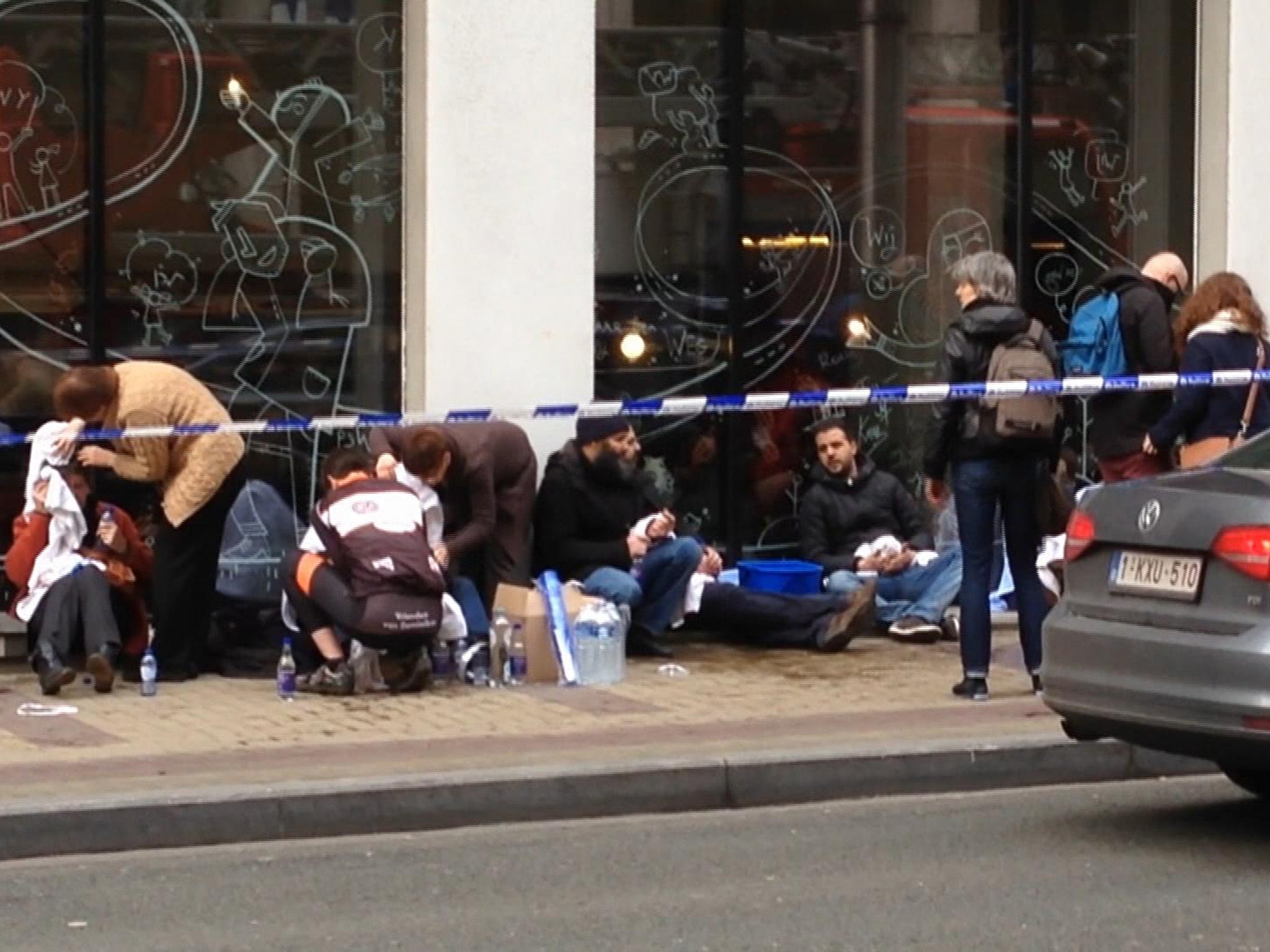Brussels attacks: The atrocities committed by Isis have exposed Belgium's failings as a society
The mayor of Vilvoorde, a suburban town outside the capital, called Belgium’s security arrangements 'a perfect example of organised chaos'

The atrocities in Brussels this morning broke disturbing new ground. Until now, Belgium has been a incubator of jihadism rather than itself a target for indiscriminate, home-grown terrorism. The May 2014 attack on the Jewish Museum in Brussels, in which four people died, was more anti-Semitic than “anti-Belgian” in motivation. It was carried out by a French-born Islamist radical.
Today's attacks are different. The chosen targets were Belgian, although also clearly international. The bombers struck the American departure area of Zaventem airport and a metro station 200 metres from the headquarters of the European Commission.
Brussels has become, for complicated reasons, one of the epicentres - if not the epicentre – of jihadism in Europe. The 13 November attacks in Paris last year were, as we know, planned and carried out from Brussels. Their ringleader, Abdehamid Abaaoud, was born in Belgium. The runaway surviving Paris attacker captured last week, Salah Abdeslam, is a French citizen of Moroccan origin who has spent his whole life in Molenbeek, the sprawling 40 per cent Muslim commune (borough) which stretches west from the centre of Belgian’s capital. Proportionally, there are more young Belgians – including many converts – fighting with Isis and other jihadist groups in the Middle East than from any other European Union nation.
The timing of yesterday’s attacks suggests that the motive might have been revenge for Abdeslam’s capture. The truth may be more complicated.
There are good reasons to believe that Abdeslam has been on the run from Isis for the last four months, as well as the Belgian and French police. He pulled out of a suicide bombing in Paris on 13 November. The network which has hidden him under the nose of the Belgian’s security services appears to have been composed mostly of disaffected youths with no particular Islamist axe to grind.
Yesterday’s attacks could have been carried out by a quite different 'cell', as a demonstration of continuing jihadist menace rather than specifically to “avenge” Abdeslam.

All these facts point, nonetheless, to a deep and festering problem in Brussels, which goes beyond, the disturbing radicalisation of a fringe of Muslim youth in France or Britain or the Netherlands or Germany. Why Belgium? Why Brussels? Why Molenbeek?
There are the usual factors – unemployment, discrimination, split-identities – which explain the alienation of young Muslims in other European countries. In Belgium, they have been intensified by the country’s own divided identity as Dutch and French speakers have drifted further apart in the last two decades. Most Muslim youths in Britain or France do consider themselves British or French. What should a youth of Moroccan origin born in Brussels consider him or herself to be? A Fleming or a Walloon? Or a Bruxellois?
At the same time, the division of the country in all but name has undermined the national or federal institutions – including the police, justice system and intelligence services. Belgian politicians now think largely in terms of their “regions” or language communities, rather than problems on a national scale. The different branches of the police and security services have infamously poor communications with one another. Hans Bonte, the mayor of Vilvoorde, a suburban town outside Brussels, once called Belgium’s security arrangements “a perfect example of organised chaos.”
A country which regards itself as supremely international has become dysfunctionally preoccupied with parish politics. Add to this the fact that Belgium has long been a clearing house for illegal arms deals and that its geographical situation makes it a perfect launch-pad for attacks on neighbouring countries.
Until today, the hatred of western and democratic values spawned in Europe’s “capital” has mostly been exported. Divided, inward-looking Belgium is no longer immune.
Join our commenting forum
Join thought-provoking conversations, follow other Independent readers and see their replies
Comments
Bookmark popover
Removed from bookmarks